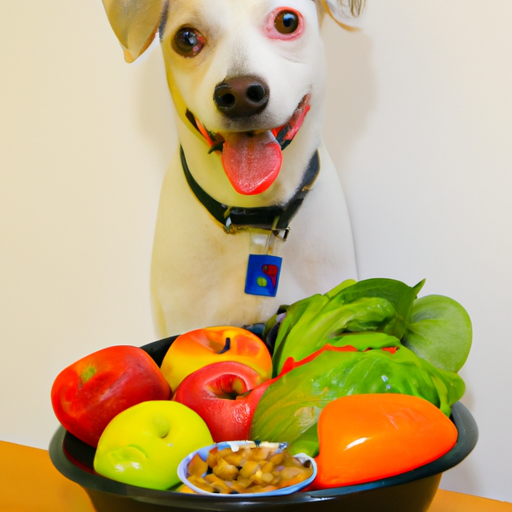“`markdown
What Can You Feed Dogs?
As a caregiver, you have a lot on your plate, and it’s understandable that sometimes figuring out what to feed your furry friend can be a bit complex. In this guide, we’ll walk you through what you can feed your dog, and what you should avoid.
1. The Basics of a Dog’s Diet
Your dog’s diet should be balanced and complete, providing all the nutrients that your pooch needs. You should be feeding them:
- Protein: This should come from high-quality animal sources, like meat or fish.
- Carbohydrates: These provide your dog with energy. They can come from sources like whole grains or vegetables.
- Fats: These are necessary for a healthy coat and skin. They can come from sources like fish oil or flaxseed.
- Fiber: This helps with your dog’s digestion. It can come from sources like whole grains or vegetables.
- Vitamins and Minerals: These are necessary for a variety of bodily functions. They can come from fruits, vegetables, and specially formulated dog foods.
Please note: every dog is unique, and therefore, their dietary needs will differ based on factors like age, size, breed, and health status.
2. Foods You Can Safely Share With Your Dog
There are some ‘human foods’ that are perfectly safe for your dog to eat. These include:
- Peanut Butter: High in protein and healthy fats. Just make sure it’s unsalted and doesn’t contain xylitol.
- Cooked Chicken: A great source of protein that can be added to your dog’s regular food.
- Cheese: If your dog is not lactose intolerant, cheese can be a great treat. Opt for low or reduced fat varieties.
- Carrots: They are low in calories and high in fiber and vitamins.
- Pumpkin: High in fiber and vitamin A, it’s good for your dog’s digestion.
3. Foods You Should Avoid
Not all foods are safe for dogs. Here’s a table of some foods that you should avoid feeding your dog:
| Food | Why It’s Harmful |
|---|---|
| Chocolate | It contains theobromine, which is toxic to dogs. |
| Grapes & Raisins | They can cause kidney failure in dogs. |
| Onions & Garlic | They can damage a dog’s red blood cells, leading to anemia. |
| Alcohol | It has the same effect on a dog’s liver and brain that it has on humans, but it takes a lot less to do its damage. |
4. The Importance of Regular Feeding Times
Consistency is key when it comes to feeding your dog. Regular feeding times not only help to keep your dog’s digestive system in top shape but also help to establish a routine, which dogs thrive on.
5. Understanding Your Dog’s Unique Needs
Remember, every dog is unique. Factors such as age, breed, size, and health will all influence what and how much your dog should be eating. When in doubt, it’s always best to consult with your vet.
Frequently Asked Questions
Q: Can I feed my dog a vegetarian or vegan diet?
A: Dogs can technically survive on a carefully balanced vegetarian or vegan diet, but it’s much easier to provide them with all the nutrients they need with a diet that includes animal protein.
Q: How often should I feed my dog?
A: Most adult dogs should be fed once or twice a day. Puppies usually require more frequent feedings.
Q: Can I feed my dog raw meat?
A: Feeding your dog a raw diet can pose risks such as exposure to bacteria and parasites. It’s best to discuss this with your vet.
“`



